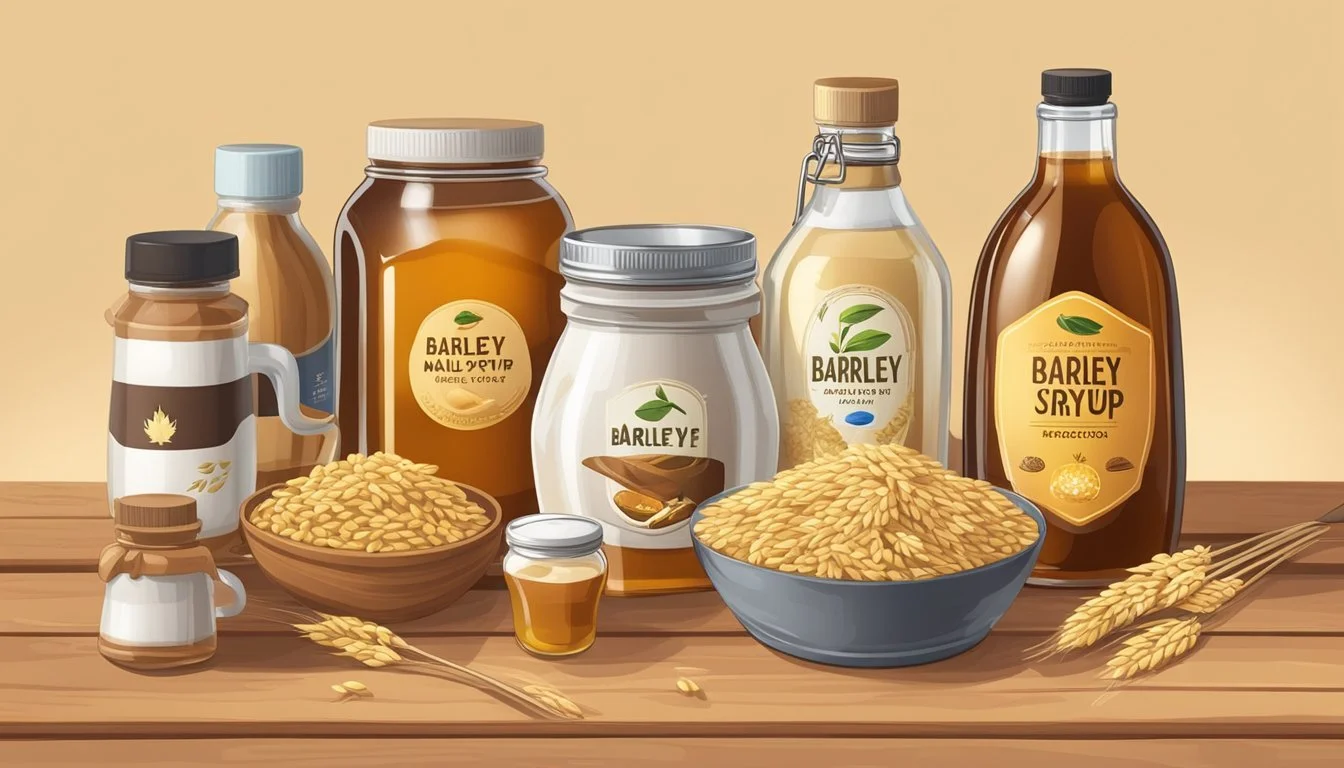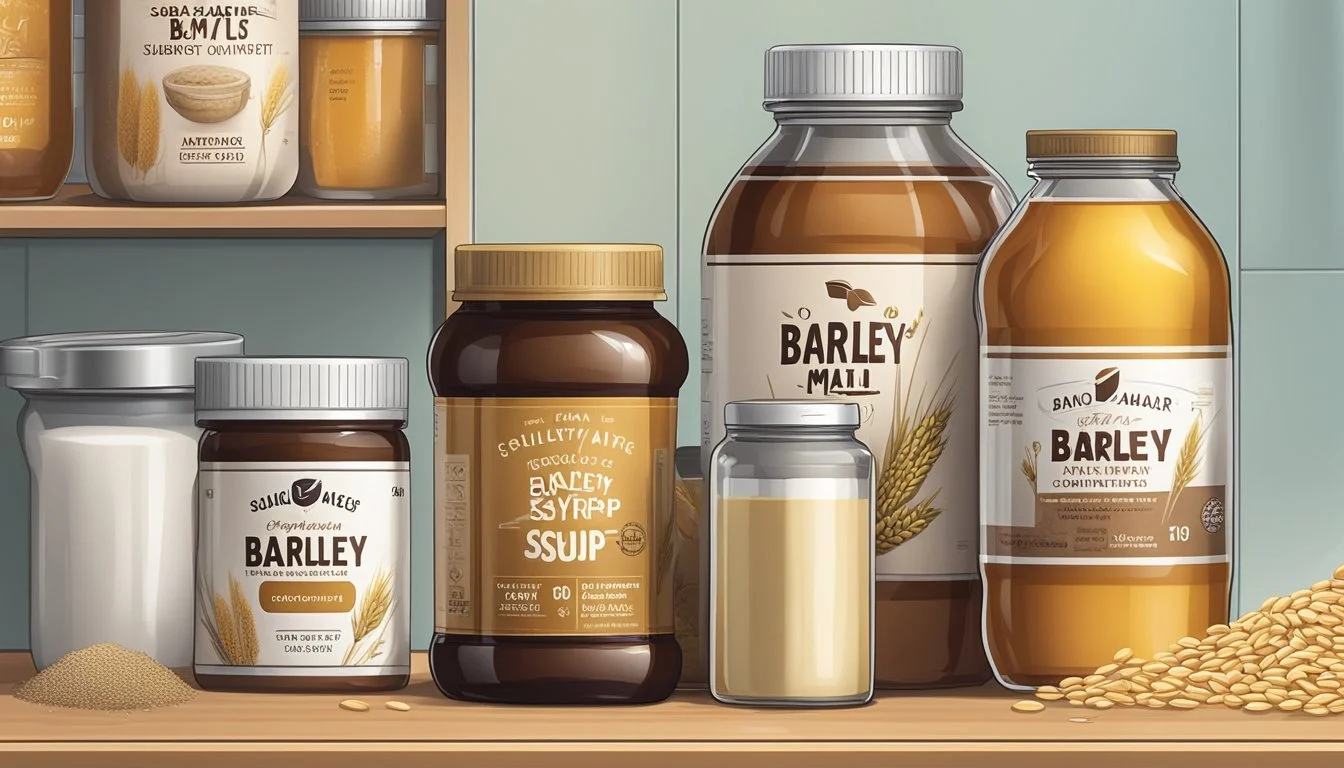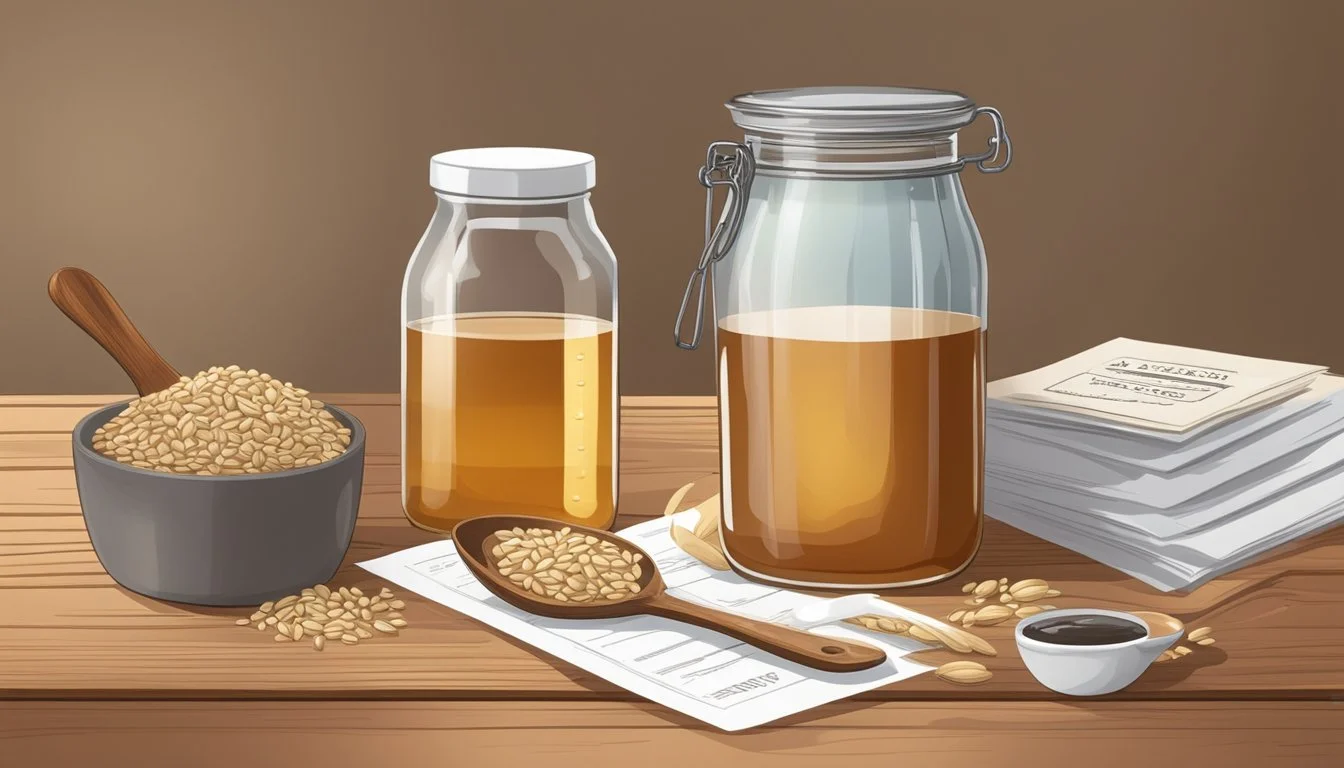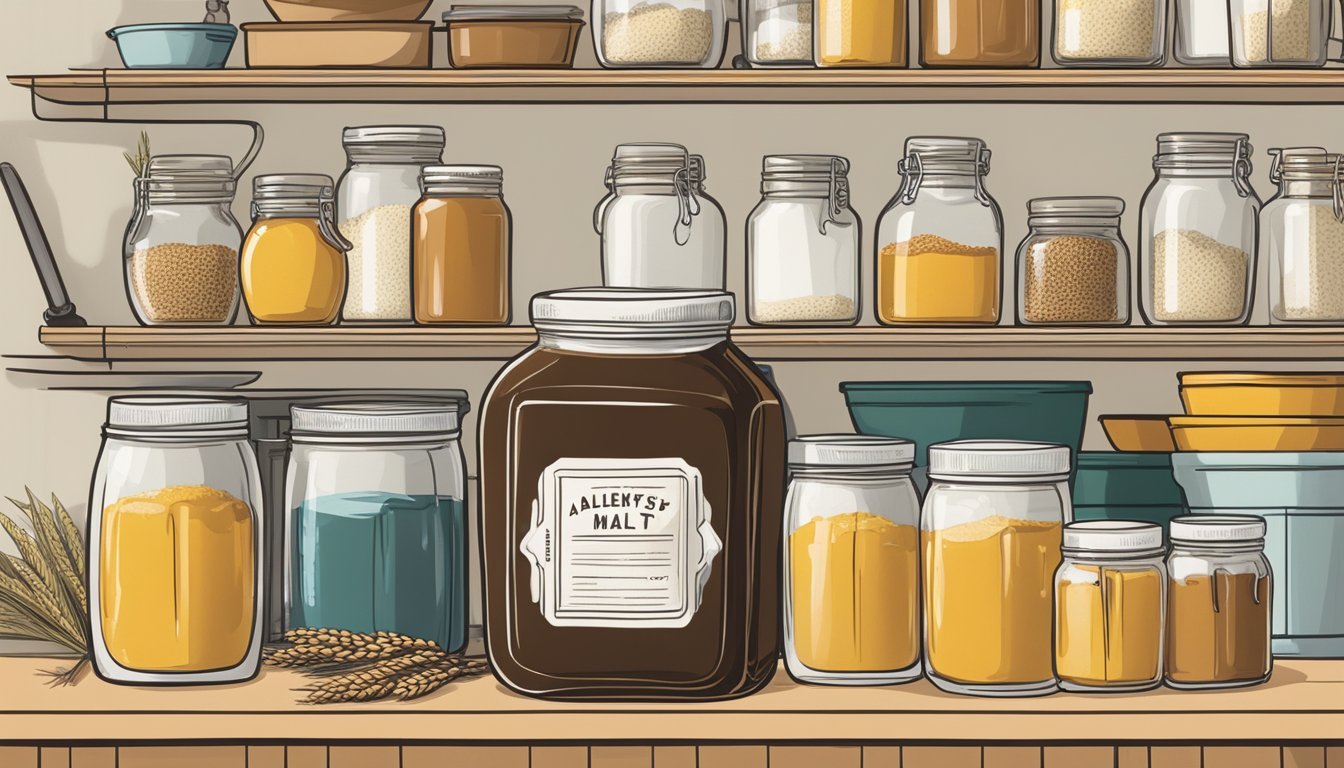Barley Malt Syrup Substitutes
Best Alternatives for Sweetening
Finding the perfect substitute for barley malt syrup can be essential for achieving the right flavor and consistency in various recipes. Whether you're baking bread, making bagels, or preparing a sweet treat, knowing the right alternatives can save your dish. One of the best substitutes for barley malt syrup is honey, as it mimics both the consistency and sweetness effectively.
Other viable options include Korean rice syrup and brown rice syrup, which provide a thick, sweet texture similar to barley malt syrup. Each substitute offers unique flavors that can complement different recipes while maintaining the desired consistency.
Substitutes like molasses, agave syrup, or maple syrup also add a rich sweetness, although with slight variations in taste. Exploring these alternatives can help maintain the integrity of your recipes without compromising on flavor or texture.
Understanding Barley Malt Syrup
Barley malt syrup is a versatile ingredient known for its rich flavor and various applications in cooking and baking. It offers a unique taste profile and essential nutrients, enhancing the quality of numerous dishes.
Nutritional Profile
Barley malt syrup is derived from sprouted barley grains. It contains complex carbohydrates which provide sustained energy. This syrup is rich in maltose, a sugar less sweet than sucrose, contributing a mild, pleasant sweetness to recipes.
Additionally, barley malt syrup includes small amounts of vitamins and minerals, such as potassium, magnesium, and vitamin B. These nutrients, although present in minor quantities, add to the syrup's overall health benefits. Being less processed than many sweeteners, it retains more of its natural enzymes and nutrients.
Despite its benefits, it’s important to note the syrup’s caloric content. Similar to other sweeteners, moderation is key to maintaining a balanced diet. People with gluten sensitivity should avoid it, as barley contains gluten.
Common Uses in Cooking and Baking
Barley malt syrup plays a crucial role in both cooking and baking. It is often used in making bread, contributing to the final product's flavor, color, and texture. This syrup helps in achieving the desirable maillard reaction, which produces a rich, golden crust.
In baking, barley malt syrup is commonly used in recipes for bagels, pancakes, and desserts. It imparts a distinct, malty flavor that enhances the overall taste of baked goods. This syrup is also a traditional ingredient in making beer, where it functions as a fermentable sugar.
Barley malt syrup's thick consistency and robust flavor make it a suitable sweetener for various sauces and marinades. It pairs well with savory dishes, adding a unique depth. When substituting for other sweeteners, adjustments may be needed to balance the flavor and ensure the desired consistency.
Critical Aspects of Substituting Barley Malt Syrup
When considering substitutes for barley malt syrup, it is vital to evaluate the impact on both the texture and flavor profile of the final product. Different substitutes offer varying degrees of sweetness and consistency that can alter the outcome of recipes.
The Impact of Texture and Consistency
The texture and consistency of a substitute can significantly affect the final product. Barley malt syrup is thick and viscous, contributing to the chewy texture in baked goods like bagels and pretzels.
Honey: A thick, sweet liquid that maintains a similar viscosity to barley malt syrup.
Brown Rice Syrup: Mimics the thickness and syrupy quality, suitable for glazes and marinades.
Blackstrap Molasses: Offers a dense consistency, ideal for baked goods but with a stronger dominance in flavor.
Without the proper consistency, the structure of items such as breads or desserts may be compromised, altering their chewiness or moisture levels.
Flavor Profile Considerations
The flavor of a substitute is equally important. Barley malt syrup has a distinct malted, caramel-like taste, crucial for certain recipes.
Honey: Adds a mild, floral sweetness, often preferred for its gentle flavor.
Korean Rice Syrup: Contains barley malt powder, offering a sweet and earthy flavor, making it a closer match.
Blackstrap Molasses: Provides a rich, robust taste with caramel notes useful in breads and baked beans.
Ensuring an appropriate flavor profile is essential to maintain the traditional taste in recipes like marinades and sausages. If the substitute's flavor diverges too much, it can significantly change the dish's intended character.
Natural Sweetener Alternatives
Natural sweeteners like honey, agave syrup, maple syrup, and golden syrup offer flavorful and healthier options. These substitutes can cater to preferences such as vegan and gluten-free diets, all while maintaining a versatile profile in various recipes.
Honey and Agave Syrup
Honey is a popular natural sweetener made by bees from the nectar of flowers. It has a thick consistency and a rich, sweet flavor, making it ideal for baking, cooking, and as a table sweetener. Honey also contains antioxidants and has antimicrobial properties, adding some health benefits to its sweet taste.
Agave syrup, also known as agave nectar, is derived from the agave plant. It has a milder flavor compared to honey and dissolves well in both hot and cold liquids. Agave syrup is also a vegan-friendly option and boasts a lower glycemic index, making it a preferred choice for people monitoring their blood sugar levels.
Maple Syrup and Golden Syrup
Maple syrup is a natural sweetener made from the sap of sugar maple trees. Known for its distinctive, robust flavor, maple syrup works exceptionally well in recipes for pancakes, waffles, and baked goods. It is a good source of minerals like calcium, potassium, and iron, making it not just a sweetener but also a nutrient-rich option.
Golden syrup is a thick, amber-colored invert sugar syrup made from sugar cane or sugar beet juice. It has a rich, buttery flavor that complements many baked goods and desserts. Golden syrup is notable for its smooth texture and is often used in British recipes. Both maple and golden syrup are suitable for those avoiding refined sugars, offering a more natural sweetness.
Other Plant-Derived Syrups
Brown rice syrup is a gluten-free option that provides mild sweetness. Made from the fermentation of brown rice, it is often used in vegan cooking due to its light and neutral flavor.
Coconut syrup is derived from the sap of coconut palms. It has a unique, tropical flavor and is rich in nutrients like potassium and amino acids. Coconut syrup is also a lower glycemic sweetener, suitable for those seeking to manage blood sugar levels.
Date syrup is made from concentrated date juice. It offers a caramel-like flavor and is high in minerals such as magnesium and potassium. This syrup is another vegan and gluten-free alternative, perfect for adding sweetness to both desserts and savory dishes.
Vegan-Friendly Substitutes
For those seeking vegan-friendly alternatives to barley malt syrup, there are a few notable options. Brown rice syrup and a combination of coconut and date syrups offer distinct flavors and textures suitable for various recipes.
Brown Rice Syrup
Brown rice syrup is a popular vegan alternative due to its mild, sweet flavor and thick consistency. It's derived from fermented brown rice, making it a natural and unprocessed sweetener. This syrup works well in various vegan dishes, including baked goods and pancakes.
A key advantage of brown rice syrup is its consistency, which closely mimics that of barley malt syrup. This similarity ensures that it can be easily substituted without altering the texture of the final dish.
In vegan cuisine, brown rice syrup is often favored because it is both gluten-free and free from artificial additives. For those with dietary restrictions, this syrup provides a reliable substitute that enhances both flavor and texture.
Coconut and Date Syrup
Combining coconut and date syrups creates a sweet blend that can effectively substitute barley malt syrup in vegan recipes. Coconut syrup is made from the sap of coconut trees and offers a unique taste profile with a slight hint of caramel.
Date syrup, on the other hand, is created by blending dates and water to form a thick, rich syrup. It is naturally sweet and provides a dense texture similar to barley malt syrup.
When used together, these syrups not only add sweetness but also bring in nutritional benefits like potassium from dates and vitamins from coconuts. This combination is especially appreciated in vegan baking, adding depth of flavor and natural sweetness without compromising on vegan dietary standards.
Traditional Sweeteners as Replacements
Traditional sweeteners such as molasses and sorghum syrup are excellent substitutes for barley malt syrup. These sweeteners offer similar textures and flavors and can enhance your recipes with their unique characteristics.
Molasses Varieties
Molasses, particularly blackstrap molasses, is a popular substitute for barley malt syrup. Molasses is a byproduct of sugar production, offering a rich, robust flavor. Blackstrap molasses, the final byproduct, is especially significant due to its intense, slightly bitter taste and dark color.
Use in Baking: Perfect for dark breads, gingerbread, and baked beans.
Nutrient Content: High in minerals like iron, calcium, magnesium, and potassium.
Measurement: Substitute ⅔ cup of molasses for each 1 cup of barley malt syrup.
Molasses adds a depth of flavor that can complement hearty baked goods and savory dishes.
Sorghum Syrup and Black Treacle
Sorghum syrup and black treacle are also excellent alternatives. Sorghum syrup, made from sorghum grain, has a mild, sweet flavor. It is slightly less intense than molasses, making it versatile for various recipes.
Uses: Great in pancakes, waffles, and glazes.
Flavor Profile: Offers a hint of earthy sweetness, less robust than molasses.
Substitution Ratio: Use it in a 1:1 ratio to replace barley malt syrup.
Black treacle, a thick, dark syrup found in traditional British desserts, shares similarities with molasses but is slightly milder and sweeter.
Ideal For: Treacle tarts, toffee, and rich fruit cakes.
Texture and Flavor: Provides a sticky, sweet consistency with a deep flavor.
Substitution Tips: Use it in equal amounts as barley malt syrup for a straightforward swap.
These traditional sweeteners will not only replicate the texture of barley malt syrup but also add a unique, delightful taste to your culinary creations.
Sugar-Based Substitutes
When finding alternatives to barley malt syrup, some common and accessible options involve sugar or sugar-derived products. These substitutes can offer similar sweetness and functionality in various recipes.
White and Brown Sugar Options
Sugar is a versatile and readily available sweetener that can replace barley malt syrup in baking or cooking. Both white sugar and brown sugar can be used, each bringing unique characteristics.
White sugar is widely used for its purity and consistency. It provides sweetness without altering the color or flavor profile significantly.
Brown sugar, on the other hand, contains molasses, giving it a richer flavor and darker hue. It works well in recipes needing a deeper taste and moisture content.
A good mix for replacing barley malt syrup is blending white or brown sugar with water, creating a syrup-like consistency. For example, mix 1 cup of dark brown sugar with ¼ cup water to form a thick syrup.
Corn Syrup and Sugar Beet Juice
Corn syrup and sugar beet juice are other viable substitutes for barley malt syrup. They both have distinct characteristics that can enhance different recipes.
Corn syrup is thick and sweet, primarily consisting of glucose. It closely mimics the texture and viscosity of barley malt syrup. It’s especially effective in recipes requiring smooth textures, like caramel or candies.
Sugar beet juice is less common but offers a natural, earthy sweetness. Extracted from sugar beets, it has a unique flavor and is often used in European cooking. This substitute can provide a subtle sweetness similar to barley malt syrup while retaining a natural composition.
Using these substitutes effectively in recipes requires understanding their properties and adjusting measurements appropriately to maintain the desired taste and texture.
Custom Crafting Substitutes in Recipes
When substituting barley malt syrup, understanding the flavor profiles and consistency of alternative sweeteners can help achieve desired results in both baking and savory dishes. Considerations include balancing sweetness, texture, and the unique nuances each substitute brings to the recipe.
Baking and Confectionery
In baking, the replacement of barley malt syrup needs to maintain the syrup's thick consistency and unique flavor profile. Honey is a popular option due to its thick, sweet flavor. It can be used in an equal ratio to barley malt syrup and provides a floral note that complements desserts like cakes and cookies.
Brown rice syrup is another excellent substitute, suitable for vegan recipes. It has a mild, sweet taste and similar consistency. This makes it useful in recipes such as pancakes and bagels, offering a less sweet but similarly viscous alternative.
Maple syrup brings a distinct, rich flavor, especially beneficial in creating glazes and toppings. Its thinner consistency means adjustments might be necessary to maintain the desired texture in baking. Additionally, combining dark brown sugar with water can form a homemade syrup with deep, buttery caramel notes.
Savory Cooking Adjustments
In savory cooking, finding the right balance of sweetness and depth of flavor is crucial. Blackstrap molasses provides an intense flavor akin to barley malt syrup, with a dark color that enhances dishes like marinades and baked beans. Use two-thirds of the amount required for barley malt syrup due to its robust taste.
Korean rice syrup is another viable substitute, ideal for sauces and dressings. Made from barley malt powder and rice, it supplies a rich, earthy sweetness that complements both Asian-inspired dishes and Western sauces.
For a unique twist, date syrup can be used, offering a thick consistency and deep flavor profile that enriches stews and roasted vegetables. It adds a subtle sweetness with hints of nuttiness, making it suitable for various savory applications.
Specific Usage Recommendations
The choice of barley malt syrup substitutes depends on the dish being prepared. Different substitutes excel in various culinary contexts, particularly in baked goods and Asian recipes.
Baked Goods and Pastries
In baked goods like bagels, cookies, and gingerbread, a good substitute for barley malt syrup is honey. It provides a comparable sweetness and moisture. Use the same amount of honey as barley malt syrup in recipes.
Blackstrap molasses works well too, adding rich flavor and dark color to baked items. For recipes like gingerbread, use ⅔ cup of blackstrap molasses for every cup of barley malt syrup.
Brown rice syrup is another option, especially for those seeking a gluten-free alternative. It has a mild sweetness and similar consistency, making it suitable for granola and other bakery products.
Asian Recipes and Specialty Dishes
In Asian recipes, especially those from Korean cuisine, Korean rice syrup can replace barley malt syrup. It is made from barley malt powder and rice, providing a thick, viscous texture and sweet flavor. This is ideal for dishes like glazes and sauces.
For sweetening, brown rice syrup can be a versatile option. It is vegan and gluten-free, offering mild sweetness without overpowering other flavors. This makes it suitable for various Asian specialty dishes where a gentle sweet touch is needed.
In both contexts, experimenting with measurement adjustments might be necessary to achieve the desired taste and texture.
Healthier and Dietary Substitute Options
For those seeking healthier alternatives to barley malt syrup, there are options that offer benefits such as being gluten-free or low-glycemic. These substitutes not only cater to specific dietary needs but also maintain similar sweetness and consistency.
Gluten-Free and Low-Glycemic Alternatives
Brown Rice Syrup: This gluten-free substitute is also vegan. It provides a mild, sweet flavor and a thick, syrupy texture. Brown rice syrup works well in pancakes, bagels, and baked goods, making it a versatile replacement for barley malt syrup.
Agave Nectar: Known for its low glycemic index, agave nectar is another viable option. It is easily accessible and has a sweetness comparable to barley malt syrup. This makes it a suitable choice for those managing blood sugar levels, all while being gluten-free and versatile for cooking and baking.
Korean Rice Syrup: This syrup, made from barley malt powder and rice, has a rich, earthy flavor. It's commonly used in Korean cuisine and is thick and viscous, mimicking the consistency of barley malt syrup. It offers a gluten-free option while maintaining the desired sweetness and texture in various recipes.
Exploring Global Substitute Trends
Substitute sweeteners have gained global attention, offering various flavors and consistencies to replace barley malt syrup in cooking and baking. Different cultures have developed unique natural sweeteners, highlighting the importance of local ingredients and traditional fermentation processes.
Korean Rice Syrup
Korean rice syrup stands out due to its composition and traditional preparation. Made primarily from barley malt powder and rice, it undergoes a complex fermentation process.
The result is a viscous, thick syrup with a rich, earthy sweetness. It is a staple in Korean cuisine, used in dishes needing a subtle sweetness. This syrup's texture and rich flavor make it a suitable substitute for barley malt syrup.
It also shares a similar consistency, making it a versatile ingredient in sweets and baked goods.
Availability and Sourcing
Finding high-quality substitutes for barley malt syrup can be a challenge. Supermarkets and specialty stores offer various options like honey, molasses, and brown rice syrup.
Many of these natural sweeteners come from different sources, like palm trees for palm syrup or fermentation processes for rice syrups.
When sourcing, it is essential to consider the regional availability and the specific flavors desired in the recipe. Online retailers also provide access to global products, ensuring that the necessary substitute can be purchased regardless of local supermarket stock.
This accessibility broadens the range of cooking possibilities, allowing for greater experimentation and adaptation in the kitchen.











